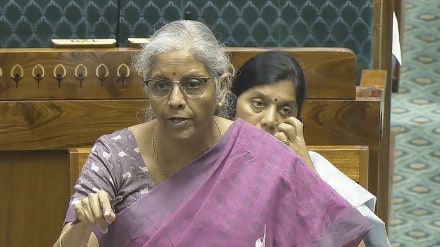Minister of State for Finance Pankaj Chaudhary on Friday introduced the Banking Laws (Amendment) Bill, 2024 in the Lok Sabha, as the Parliament continues its Budget Session. The proposed legislation includes the Banking Laws (Amendment) Bill, 2024, which seeks to amend the Reserve Bank of India Act, the Banking Regulation Act, and the State Bank of India Act, among others.
The Banking Laws (Amendment) Bill, 2024 seeks to increase the number of nominees allowed per bank account from one to four. It also proposes raising the threshold for ‘substantial interest’ for directorships from Rs 5 lakh to Rs 2 crore, a limit established nearly sixty years ago.
The bill also aims to grant banks greater discretion in setting remuneration for statutory auditors and to change reporting deadlines for regulatory compliance to the 15th and last day of each month, rather than the current second and fourth Fridays.
Congress member Manish Tewari opposed the introduction of the Bill saying the power to legislate with regard to cooperative societies vests with state governments.
Responding to opposition’s remarks, Finance Minister Nirmala Sitharaman said the banking regulation act and the cooperative banks do have a relationship and hence any amendment has to be taken through this route.
“There is no attempt to undermine the cooperatives, particularly cooperatives dealing with everything other than banks. Banks, cooperatives with a licence for banking will have to have a rule and therefore we have shown this,” Sitharaman said, as quoted by PTI.
Approved by the Union Cabinet last Friday, the bill also seeks amendments to the Banking Companies (Acquisition and Transfer of Undertakings) Acts of 1970 and 1980. Sitharaman initially outlined these changes in her 2023-24 Budget speech, emphasising that they are designed to improve bank governance and enhance investor protection.
“To improve bank governance and enhance investors’ protection, certain amendments to the Banking Regulation Act, the Banking Companies Act and the Reserve Bank of India Act are proposed,” she had said.
Industry reactions have started coming in as the union government introduced the Bill.
Anish Mashruwala, Partner, JSA Advocates and Solicitors, said, “While this was in the offing for a while, on a preliminary look it seems that most of the amendments are to take into account current realities, especially those in relation to raising thresholds. Change is the only constant and to the extent laws are being looked at to make them more effective and currently applicable, it should always be welcome.”
Gayathri Parthasarathy, Partner and Leader of Financial Services at PwC India, said, “Latest amendments are in line with expectations of the banking and financial services sector. Allowing additional nominees and bringing more flexibility for management of banks will aid evolving customer requirements . Uniform reporting standards will facilitate faster response to sectoral risks and economic challenges from regulators and investors. To keep up with the fast pace of sector growth and enable our journey to Viksit Bharat, banks need to be more autonomous and agile in responding to economic demands. These amendments are aimed at steering the sector in the right direction.”
